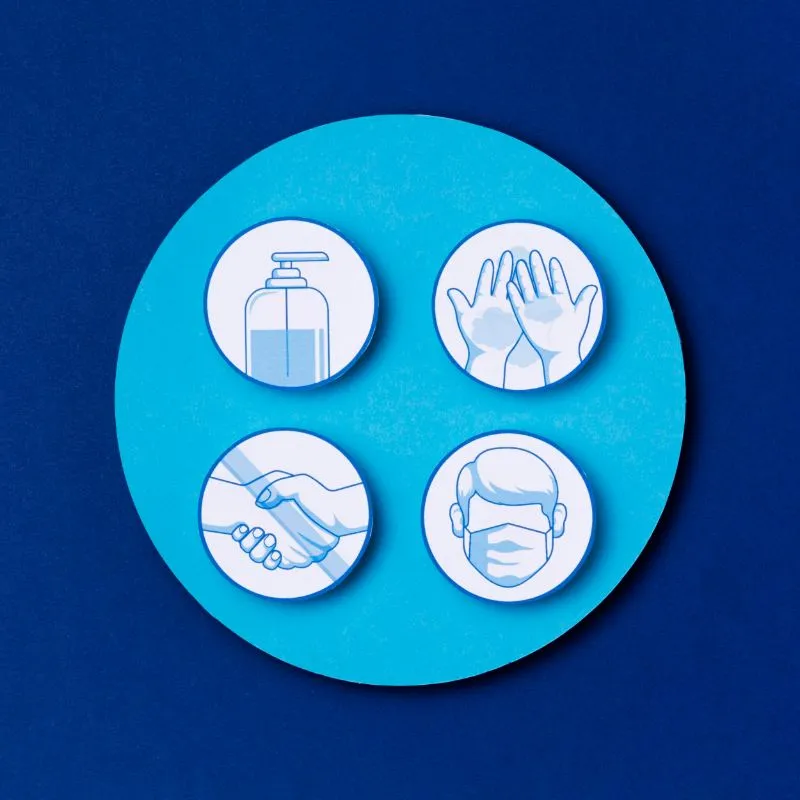As the novel coronavirus spreads far and wide, the fear attached to this outbreak also reaches colossal levels. What every one of us should realize is that around 85 to 90% of COVID-19 patients don't show severe symptoms. Only the elderly who are above 60 and those with low-immunity or underlying diseases like diabetes, high blood pressure, or cancer are more at risk of facing critical situations. While healthcare organizations around the world are constantly informing everyone of such facts and figures, people are still confused and somewhat troubled. If someone tests positive for coronavirus, they shouldn't panic. Under no circumstances should anyone rush to the hospital unless there is a real emergency.
Here are some vital dos and don'ts that we should all be aware of to stay protected and to extend that protection to people around you in case you have the infection.
1. Quarantine yourself, if you or someone around you has any flu-like symptoms, sore throat, or a dry, persistent cough. Yes, you would want to get tested to know for sure if you have the virus or not, but the test isn't readily available. Just treat yourself as a
coronavirus patient and self-isolate for 14 days. Do not rush to hospitals or clinics. There's a higher chance of contraction of the disease as well as its transmission where there are more people involved.
2. Wash your hands as much as possible. Use hand sanitizer and disinfectants on shared surfaces to keep them germ-free. Hand hygiene is essential when it comes to taking precautionary measures against coronavirus. Do not touch your face, eyes, or nose, especially if you've been outside.
3. Opting for virtual care and online consultation can save a lot of trouble in such crucial times.
Digital healthcare services like Cura4U are offering great help by giving options like appointment bookings and labs/ radiology. Make safety a priority and stay home. Doctors should practice the same precautions as they are at a far greater risk of contracting the infection since they are the first line of defense during any pandemic.
4. Rush to emergency if any of your underlying medical conditions start getting worse. If you are at risk of a possible infection, keep a check on your vitals. Any asthma/respiratory disease patient or those with cardiovascular issues should monitor their breathing to stay abreast of their situation.
5. CDC has given out a few pointers that help make a quick assessment about being infected. They include difficulty in breathing, any pain or pressure in the chest, purplish-blue lips that may be a sign of reduced oxygen in the bloodstream, severe drowsiness, and a strong bout of unending cough. These prompt a definite trip to the emergency for treatment.
6. Home care is better for confirmed
coronavirus cases. Whether you have the infection or one of your loved ones, staying indoors is the key to curbing the spread of the virus. Drink plenty of fluids, soups, simple paracetamol for fever, and lots of rest. Do not go out in public places. Cover the nose and mouth while sneezing or coughing. Keep your hands to yourself, avoiding touching shared surfaces.
7. Clean and disinfect bathrooms every time the sick person uses them. Staying in one place is extremely good to control further transmission. Do not go to their room unnecessarily. Do not share their utensils or other daily supplies. Keep a distance of six feet when communication with patients is necessary. Wear a face mask when talking with people. In case there are kids around the house, keep them away, and under no circumstances should they be allowed to approach the patient. The same goes for the elderly.
.There are currently no vaccines or medicines that can cure coronavirus. “Prevention is the cure” when it comes to this disease. Social distancing and isolation can help save millions of lives during this outbreak. Stay home and consult reliable doctors virtually. Book lab tests/imaging services that can benefit lives everywhere while staying safe and secure.












